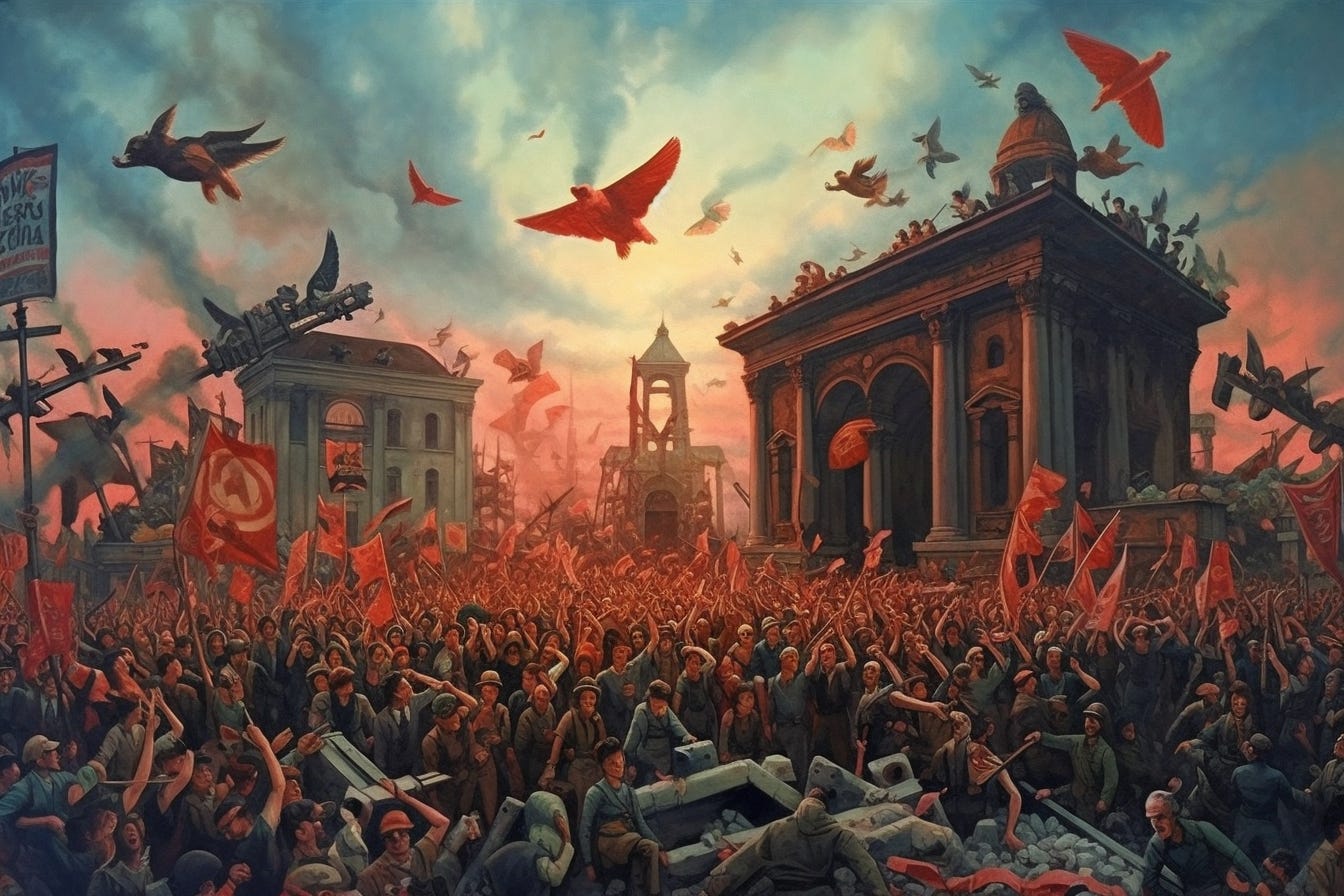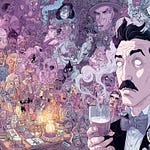Sometimes I look at what is happening in the world around me, both at home and abroad, and I feel like I’m watching some kind of slow-motion car crash. It’s so obvious what is happening, what is going to happen, and yet the protagonists are oblivious.
At school we learnt about dramatic irony: when the audience sees what the characters in the play don’t. That’s how I feel when I watch what Western Europe is careering towards. From energy to fiat money to mass immigration, we don’t seem to realise what we are doing to ourselves, nor what the long-term consequences of some of these decisions, if you can call them that, are going to be, never mind the sheer stupidity of many of the arguments that are taking place.
I suggest that pretty much everything that “isn’t” working has some kind of state action at its heart, yet the solution always seems to be more state. When will people realise that the state itself is the problem? I’m not holding my breath.
“Our political economy is broken,” says right-leaning commentator Matt Goodwin. Left-leaning commentator Matt Forde describes himself as “politically homeless.” It is the same thing. It does not matter where on the political compass you are, left, right, libertarian, authoritarian, barely a soul feels represented. I have never known a time when so many felt so disenfranchised. Nobody wants what we have, nobody voted for it.
(By the way if you have never done a political compass test, you should. I always encourage my mates to: it is a surprisingly effective remedy for political division).
Such is the discontent, if this was a history book, you would expect the next episode to be some kind of revolution or revolt. It feels like we need a revolution today. Almost all of Europe and the US is discontent. Enough people are calling for it. But here is the depressing fact: a revolution is not possible.
We can’t “starve the monster” and refuse to pay taxes, because almost all taxes are deducted at source. Whether you like it or not, your endeavour is funding this thing. In the case of Income Tax, which, together with National Insurance, accounts for 50% of government revenue, PAYE means most workers never actually receive the money, so are never in a position to be able to refuse to hand it over. Nor can you go into a shop and refuse to pay the VAT, or the fuel or alcohol duty.
Nor can we take the traditional route and rise up and revolt like the peasants in 1381, the Americans in 1765 or French in 1789, because, in Europe at least, we are not allowed to carry arms. The mismatch in weaponry between citizen and state is too great.
That leaves voting. What good does that do? Elections every five years change nothing. Representative democracy is conflation: it’s neither representative nor democratic. Direct democracy, when citizens vote on issues as they arise - should we legalise drugs? What should the immigration cap be? - and politicians then administer the will of the people, might work. It would certainly engage citizens. But that will not happen.
The one vote that seemed meaningful was Brexit. Here was a chance, finally, to change the direction of the tanker, but that has largely proved a wasted opportunity. The basic tax reforms that Liz Truss and Kwasi Kwarteng attempted were stamped out pretty quickly by the IMF, the Bank of England, the globalists or whoever it was.
There are occasional glimmers of hope. For example, in December 2021, when Prime Minister Boris Johnson didn’t lock down against the tide of the rest of Europe, which did. But the only reason Johnson didn’t lock down is because Steve Baker headed a Conservative rebellion, which, basically, said it would put a vote of no confidence in Johnson if he locked us down. So Johnson only took that decision to save his own skin. It was a classic of the career risk genre.
I’ve always been very interested in figuring out how things work. That’s why I’ve written so much about our systems of money and tax: these are the zero patients. We now have this slow motion car crash, but there is nothing anyone can do. You can’t starve the system by not paying taxes. You can’t rise up and overthrow it, because we are unarmed.
All most of us can do, I guess, is put are own house in order, hope that others do the same and we can extrapolate from there. But most people can’t put their own house in order because they can’t afford a house! We have the state to thank for that. People only have smaller families, because they can’t afford to have bigger families. And what is the biggest cost in everyone’s life? The state.
The government solution, however, to smaller families is to import people from abroad and so the locals are eroded away. The locals are then told this is what has to happen because of something somebody may or may not have done three hundred years ago.
Depressing.
So, if no revolution, what happens next? You know the answer to that: the South Africanisation of Everything.
My dad always used to say there was no Golden Age. It only ever existed in people’s minds. But if I were to look back at history and think when did we get it right? I think the closest Britain came was in the 30 or so years around the turn of the 20th century, between say 1880 and 1910. When most of history is just lurching from one cock up to another, this was a brilliant period. It produced brilliant people who did brilliant things. We’ve a way to go before we get back to that.
Interested in buying gold to protect yourself in these uncertain times? My recommended bullion dealer is The Pure Gold Company, whether you are taking delivery or storing online. Premiums are low, quality of service is high. They deliver to the UK, US, Canada and Europe, or you can store your gold with them. More here.













